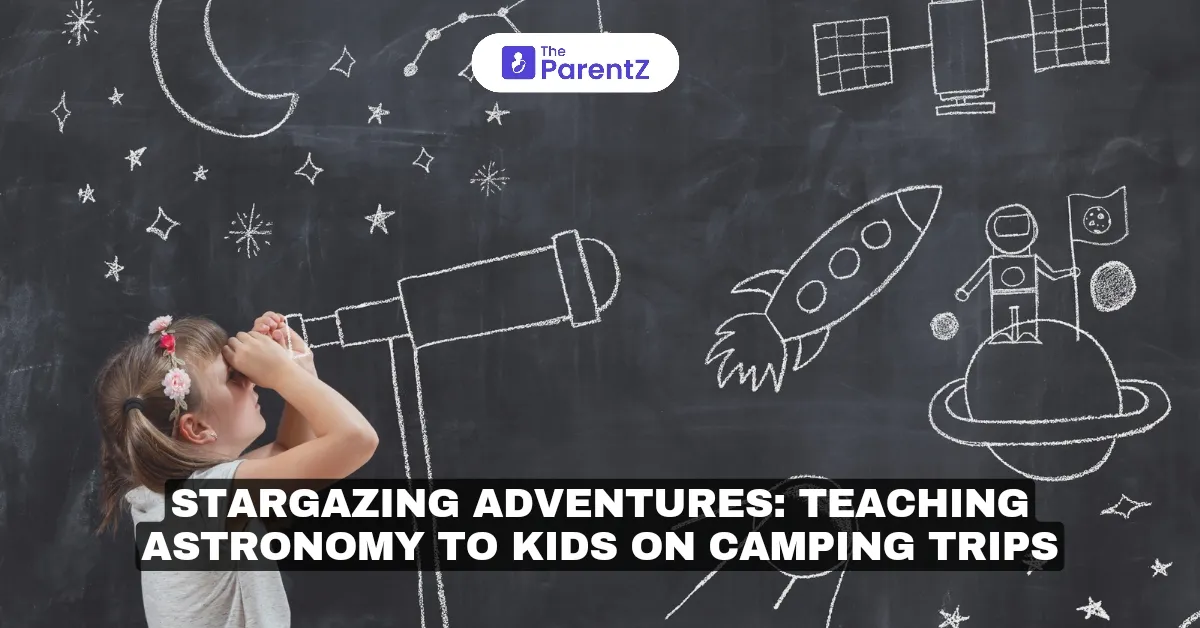Camping trips are a fantastic opportunity to connect with nature, bond with family and friends, and explore the wonders of the universe. One of the most exciting activities you can introduce during these trips is teaching astronomy to kids. The night sky, away from city lights, becomes a canvas of stars, planets, and constellations just waiting to be discovered. In this blog, we’ll explore how to make astronomy fun and engaging for kids while camping.
Why Teach Astronomy While Camping?
Teaching astronomy during camping trips is a unique way to blend education with adventure. Here are a few reasons why it’s a great idea:
- Inspiration: The vastness of the night sky can inspire awe and curiosity in children. It encourages them to ask questions and find answers about the universe.
- Bonding Time: Stargazing can be a shared experience that brings families closer together. It’s a perfect opportunity for storytelling and sharing knowledge.
- Hands-On Learning: Being outdoors allows kids to learn through observation and interaction, making the experience more memorable.
Preparing for Your Astronomy Adventure
Before you set out on your camping trip, it’s helpful to prepare a bit:
1. Research the Night Sky
Check what celestial events might occur during your trip. Are there meteor showers, visible planets, or phases of the moon? Websites and apps like SkySafari or Star Walk can help you plan ahead.
2. Gather Your Tools
While you don’t need fancy equipment to enjoy astronomy, having a few basic tools can enhance the experience:
- Star Charts: Print out star charts or download apps that show constellations visible in your area.
- Binoculars or a Telescope: If you have space in your gear, binoculars can help kids see details on the moon or planets.
- Flashlights: Bring red flashlights to preserve night vision while reading star charts or taking notes.
3. Pack Some Snacks
Stargazing is more fun with snacks! Pack some easy-to-eat treats like trail mix or s'mores for a cozy night under the stars.
Fun Activities for Teaching Astronomy
Once you’re at your campsite and night falls, it’s time for some fun activities that will make teaching astronomy enjoyable for kids!
1. Constellation Hunt
Start by teaching kids about constellations. Use star charts to identify popular ones like Orion, Ursa Major (the Big Dipper), and Cassiopeia.
- Activity: Have a constellation hunt! Challenge kids to find specific constellations in the sky. You can even create stories around each constellation to make it more engaging.
2. Create Your Own Constellations
Encourage creativity by having your kids create their own constellations.
- Activity: Provide paper and markers for them to draw their constellations and invent stories about them. This activity helps them understand how different cultures have created their own myths around the stars.
3. Planet Exploration
Teach kids about all the planets in our solar system. Discuss their characteristics and distances from Earth.
- Activity: Use a simple model of the solar system made from fruits (like using a watermelon for the sun and grapes for planets) to illustrate sizes and distances.
4. Moon Phases
The moon is often one of the most visible celestial bodies at night. Teach kids about its phases—new moon, full moon, crescent, etc.
- Activity: If possible, bring along some simple crafts materials so kids can create their own moon phase models using paper plates or clay.
5. Star Stories
Every culture has stories related to stars and constellations. Share some myths or legends that explain why certain stars are named as they are.
- Activity: Encourage kids to come up with their own stories based on the stars they see. This fosters imagination while connecting them with history and culture.
Safety Tips for Stargazing
While teaching astronomy is fun, safety should always come first:
- Stay Close to Camp: Ensure children stay close to your campsite while stargazing.
- Use Red Light: When using flashlights, opt for red light to help maintain night vision.
- Dress Warmly: Nights can get chilly, so remind everyone to dress warmly and bring blankets.
Conclusion
Teaching astronomy to kids on camping trips is not only educational but also incredibly fun! By exploring the night sky together, you’ll inspire curiosity about science and nature while creating lasting memories. With just a little preparation and creativity, you can turn your camping adventure into an exciting journey through the cosmos.
So next time you head out into nature, don’t forget to look up! The universe is waiting for you and your little astronomers to explore its wonders together. Happy stargazing!









Be the first one to comment on this story.